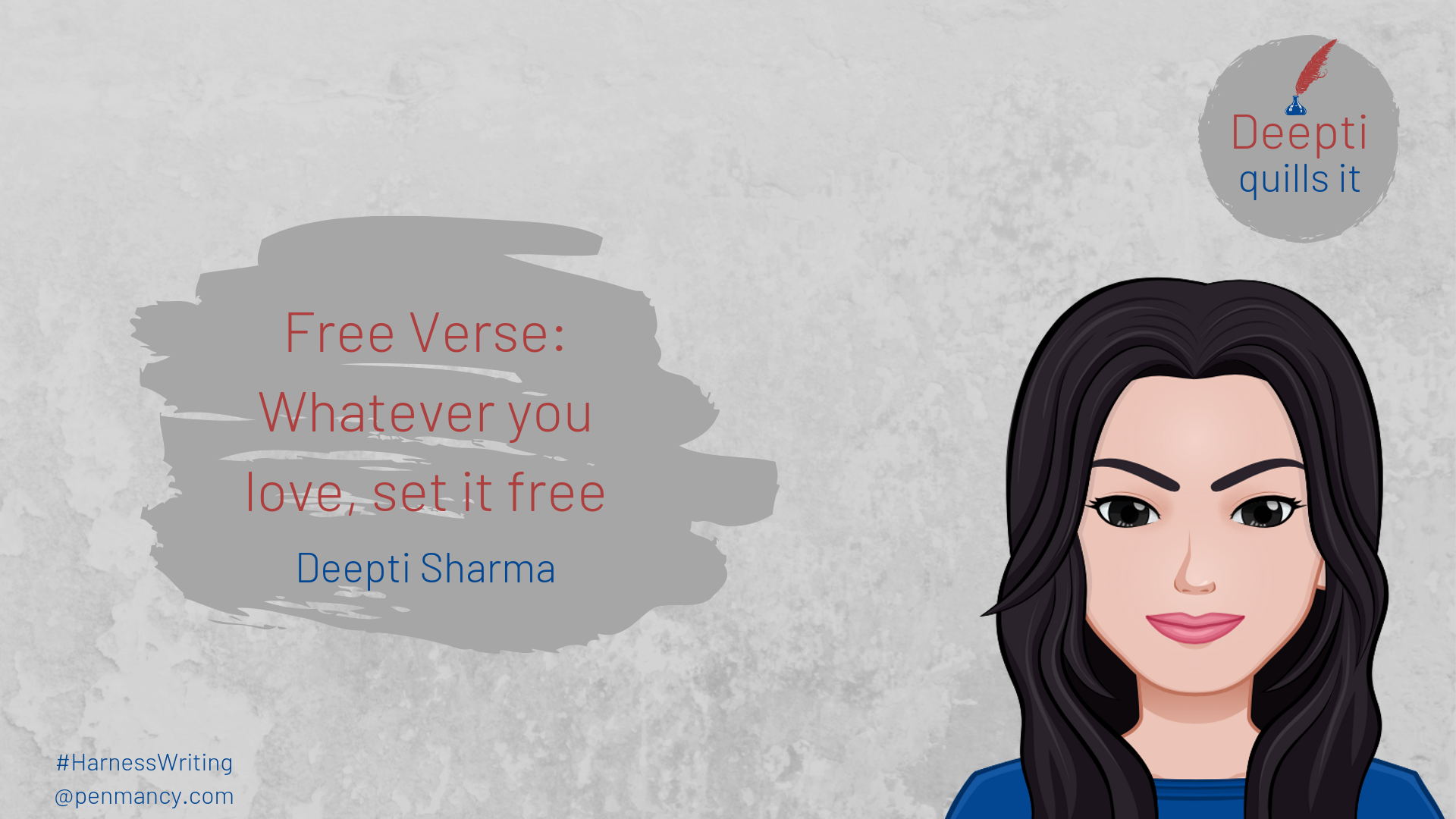
“Tonight I can write the saddest lines. I loved her, and sometimes she loved me too. Through nights like this one, I held her in my arms I kissed her again and again under the endless sky. She loved me sometimes, and I loved her too. How could one not have loved her great still eyes…” This is an excerpt from a free-verse ‘Tonight I can write the saddest lines’ by the Nobel Laureate Pablo Neruda. Do you feel any lack of connection or any absence of heartwarming poetry just because it is not in any sort of meter or doesn’t have a structure? I don’t think so, Right? Sometimes when you want to just tumble down with a certain narrative thought, the compulsion of a structure can seem to be a hindrance. Though I must admit I have read many poets who have a magic trick to make rhyming feel free like a river, my total respect to them. But today we will talk a little about free verse. As per its definition, free verse is a literary device which is not constrained by any rules per se, it doesn’t have any meter or any rhyming scheme. So, we can say it is devoid of any fixed discipline but when you recite it, there is very much a certain lyrical flow, a rhythm of its own, a kind of storytelling feel to it, which still tugs at your heartstrings like a very eloquent raconteur, taking you down with her trail of boundless cascade. Pardon me for drifting away, but a free verse does exactly that, it sets you free of certain fetters that bind your mind, falling like an autumn leaf, finding its own path. A little history of the free verse suggests that the 19th-century French poetry of Jules Laforgue and Gustave Kant first used it as vers libre. Germany’s Johann Wolfgang von Goethe also experimented with the free verse before American poet Walt Whitman popularised this tradition of writing poetry defying the traditional rhyme and rhythm structure in the latter part of the century. French later adopted it and eventually English accepted it in as late as the early twentieth century. A very effective tool in free verse is enjambment. This to amateurs like us would mean running on of a thought from one line to another without the punctuation at the end. It negates the traditional syntax break in a sentence, hence creating a drama or more impact on the reader’s mind. It helps in holding on to the thought even after the line has finished, helping the reader read your poem, the way you had thought of it in your mind. Few examples that I could take out from my write-ups are: A dollop of vanilla dream would melt over my baked brownies. 2. Wrapped in a taut six yards of curriculum never made an attempt, to be of her revealed midriff. Here in the first example, I would want the reader to keep on reciting without punctuating until she finds that full stop at the end of the fourth line. Similarly, in the second verse, the third line is enjambed, the thought flows to the fourth line from the third because the comma is not placed at the end of the third line. Like a verse poem, the mood of free verse is also shaped and meandered into any form through the use of poetic devices only. Tools like alliteration, metaphors, personification, similes, etc. help create a dramatic effect that we have in these mostly narrative poems (free verse). One very helpful tool that I personally like using is a contrary metaphor, like ‘an animated stillness of his footsteps still I could hear’. Now ‘animated’ and ‘stillness’ is a sort of oxymoron which helps create a visual where you see a sad protagonist struggling with his still very alive memories. This helps you to be narrative in a subtle dramatized manner. Even if it’s not the contrary metaphor, try to give the subject some description, more innovative the better, like in the above example I have imagined my dreams to be vanilla, my favourite ice cream flavour, it’s basic yet the vanilla stick is most exotic of flavours. That gives your poem a certain uniqueness. Another advice that I had received early on was don’t use very heavy words. Initially, we all tend to throw ourselves around by using difficult vocabulary (I am guilty of it too), but often I got the feedback that my readers needed to look into the dictionary more than reading and enjoying the poem. Eventually, they will stop reading your verses and we certainly don’t want to curtail our readership. So keep just a couple of arduous words so that your poem doesn’t lose the literary interest, but let it come down like a thunderbolt, mostly by working around the expressions more, poetic devices help you with it a lot. Let your reader be the part of the settings of your poems, create visuals in their minds where they feel to be the protagonist themselves. Let them free fall. Happy writing!! ____________________ ____________________
